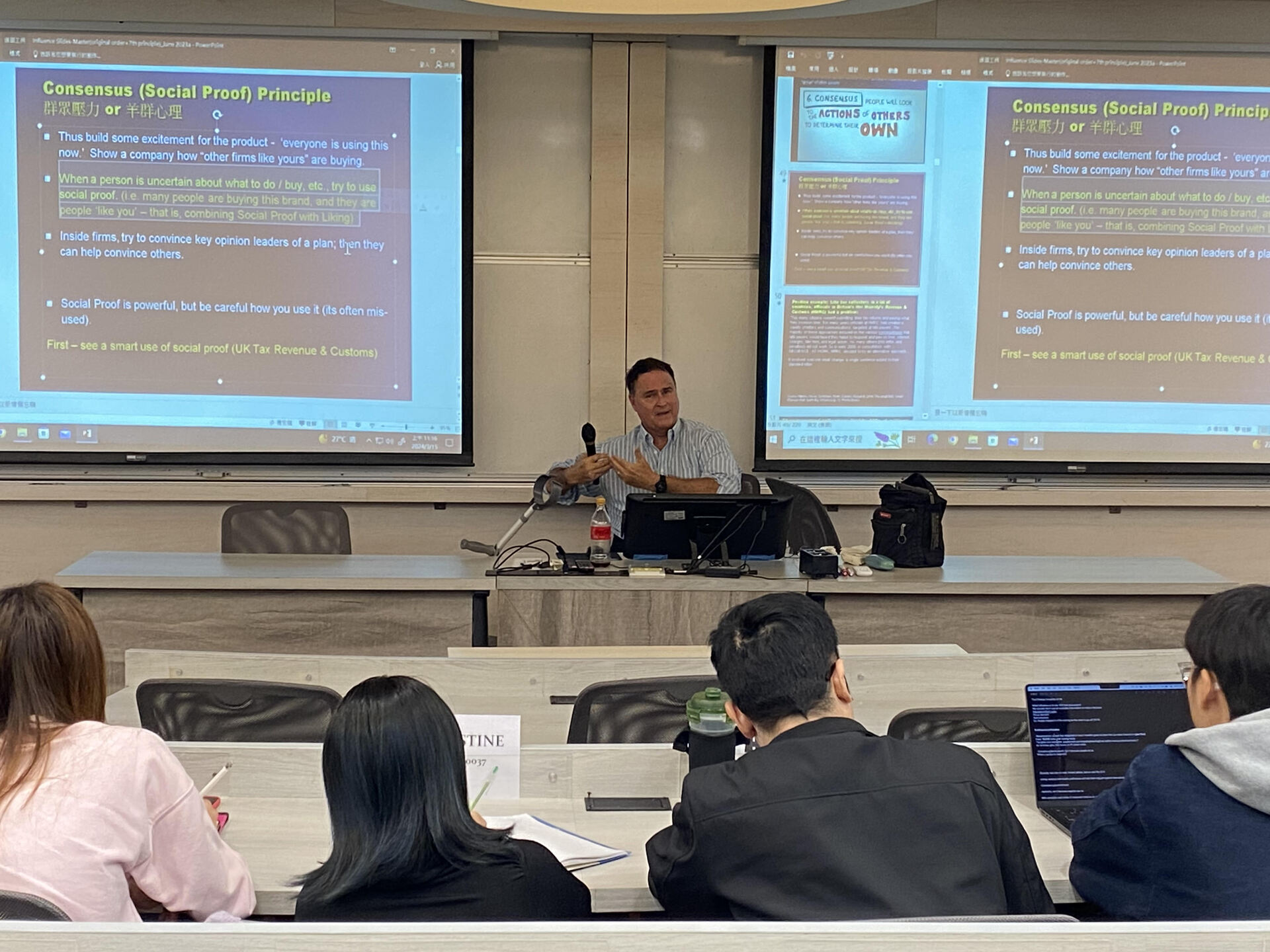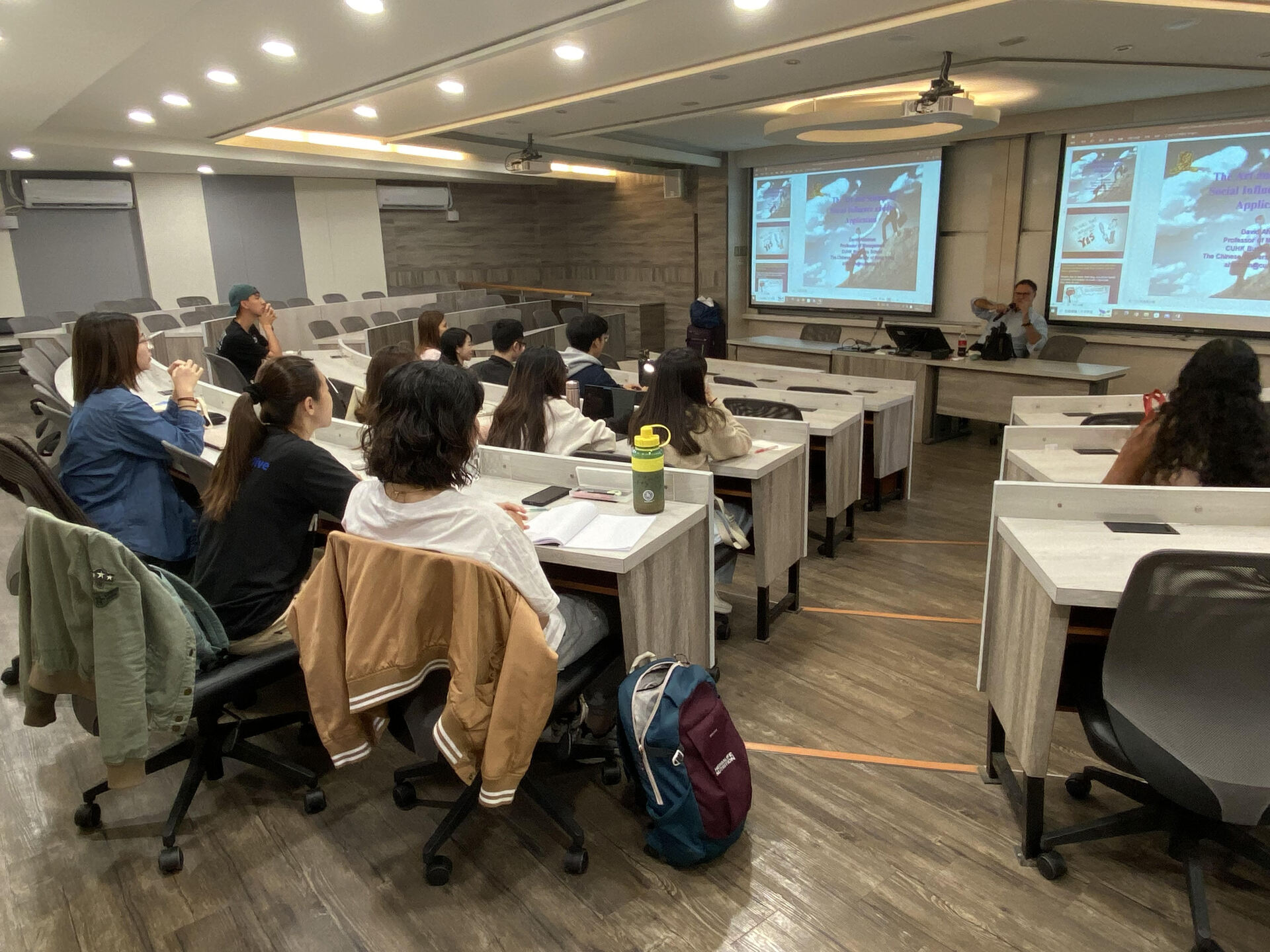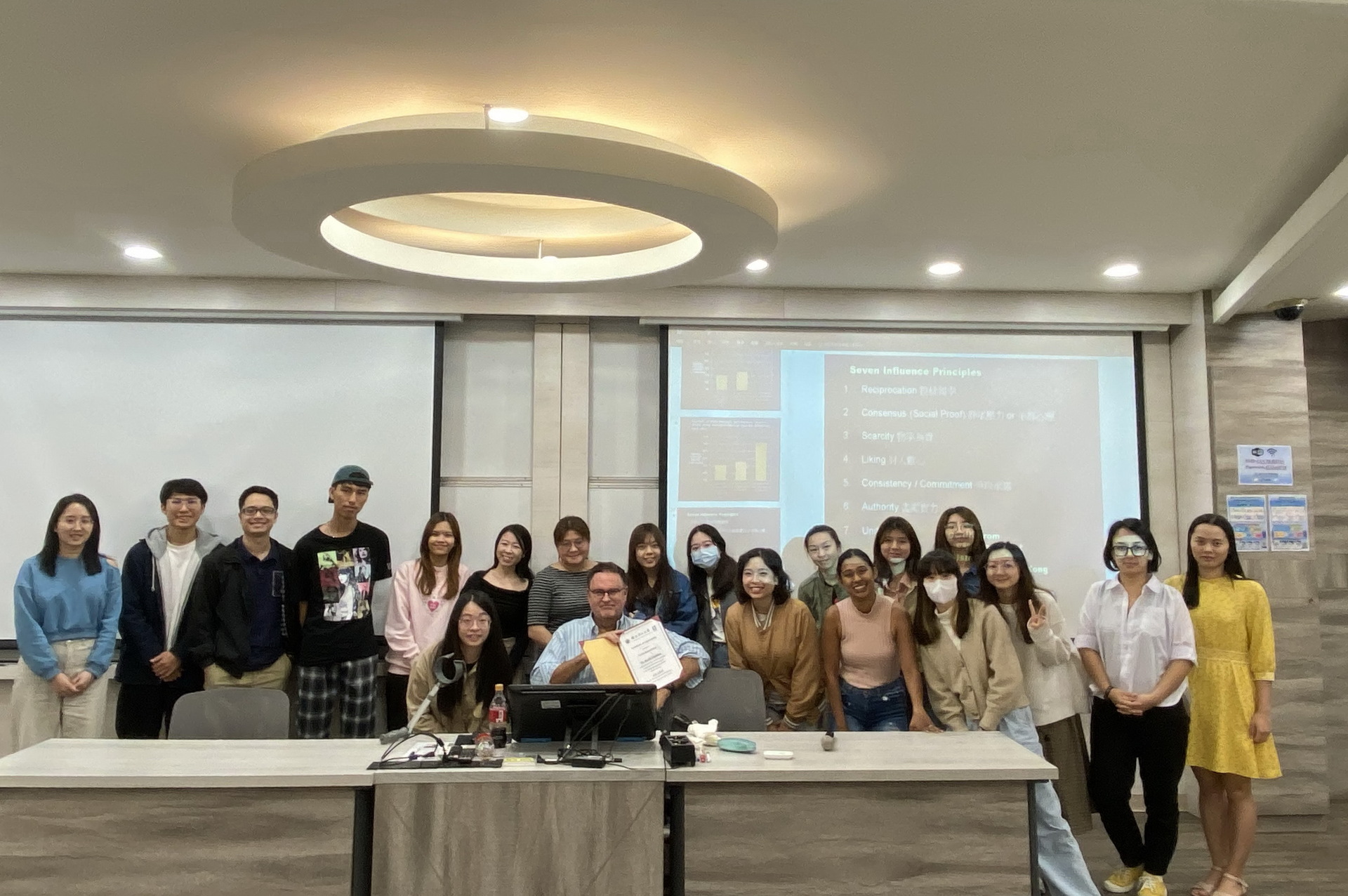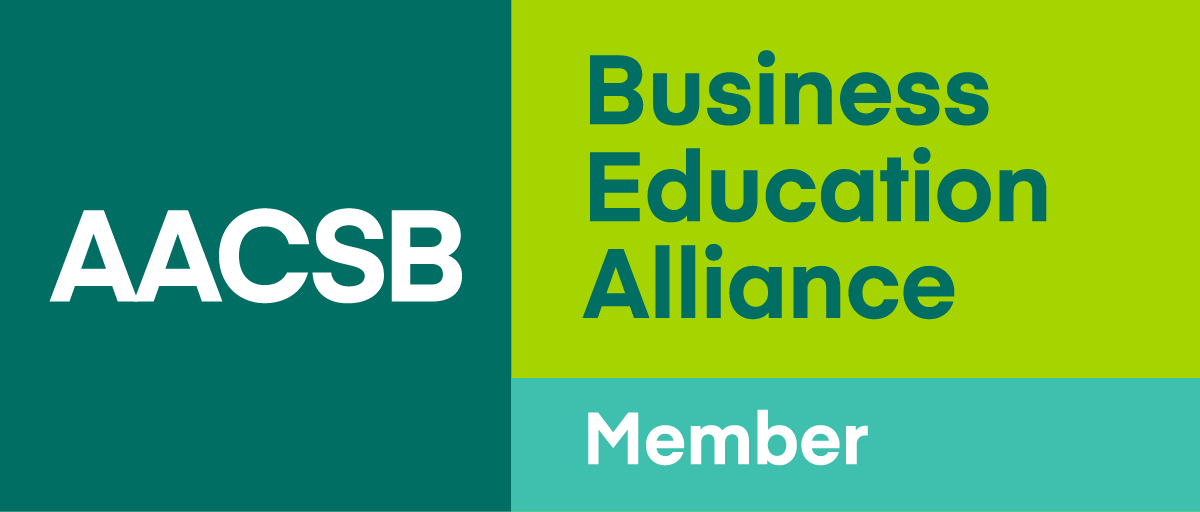《112-2 GHRM608》The Art and Science of Social Influence and its Application



On March 15th, 2024, the Human Resource Competency Development course at GHRM MBA welcomed Dr. David Ahlstrom, Professor of Management from CUHK Business School. Dr. Ahlstrom led a captivating discussion on social influence, delving into key concepts such as influence research, decision-making shortcuts, and the six principles of influence. The session provided students with valuable insights into the art and science of persuasion, highlighting the importance of these principles in effective leadership.
The session started with a deep dive into the realm of influence research, shedding light on the underlying mechanisms of persuasion. It was emphasized that while influencers may attempt to change people's behavior, consumers often follow influencers because they want to buy things, illustrating the power of influence in consumer decision-making.
A key highlight of the session was the discussion on the six principles of influence, which are foundational to effective persuasion. These principles, including reciprocation, consensus (social proof), scarcity, liking, consistency/commitment, and authority, were elucidated as the essence of great leadership, as they enable leaders to instill belief and inspire action in others.
Dr. David went on to say that exceptional leaders succeed not because they are charismatic, but because they know how to apply these influencing principles effectively. This underscores the importance of understanding and leveraging these principles to enhance leadership effectiveness.
Furthermore, to highlight the practical application of these principles, a fascinating case study on Alpecin caffeinated shampoo was provided. It demonstrated how the brand strategically applied influence concepts to attract its target audience. By portraying itself as a "from Germany" product supported by science and engineering, the brand created authority and credibility, resulting in enhanced consumer trust and social proof as proven by the product's appeal and scarcity.
The course also looked at the mechanics of group decision-making, using the Zimbardo experiment to show how people tend to conform to group behavior, which can lead to inaction in the face of an emergency. The concept of a "devil's advocate" was proposed as an important tool for countering groupthink and encouraging critical thinking within groups.
Dr. Ahlstrom next proved the power of words by showing them a brief video clip of Santa Claus giving a gift to children and asking them to pick between a large chocolate and a small chocolate. The power of language in affecting behavior was demonstrated by a simple adjustment in question framing in the "giver or receiver" experiment, in which asking children what gift they wanted to "give" resulted in a stronger preference for the smaller bear. Dr. David emphasized the value of giving and how it might positively influence others.
Overall, the session provided a comprehensive understanding of the art and science of social influence, equipping students with valuable insights and strategies to navigate and leverage influence principles effectively in their personal and professional lives. The class highly appreciated Dr. Ahlstrom’s insightful perspectives. made for a truly enriching and enlightening learning experience for all participants.




